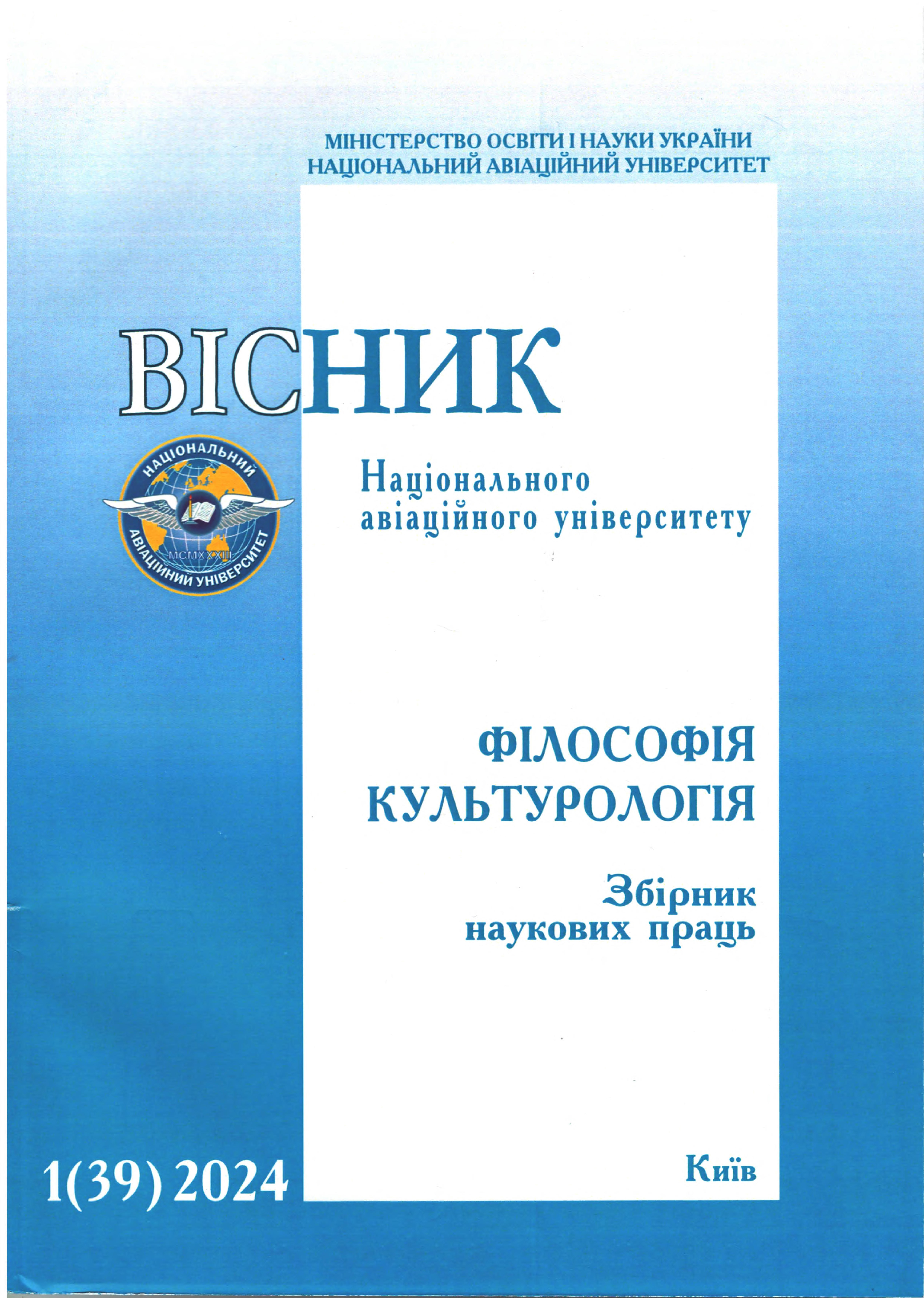THE SPECIFICS OF INTERACTION AND COMMUNICATION IN THE EDUCATIONAL SPHERE OF TECHNOLOGICAL SOCIETY (SOCIO-PHILOSOPHICAL ANALYSIS)
DOI:
https://doi.org/10.18372/2412-2157.39.18464Keywords:
communication, interaction, language, education, educational technologies, technological societyAbstract
Introduction. To achieve self-realization, a person of the 21st century needs to obtain a quality education that will provide opportunities for self-improvement. In forming a new educational paradigm, educators of social and humanitarian disciplines have faced new challenges. This necessitated a socio-philosophical study of the peculiarities of communication and interaction in the educational sphere of a technological society. Aim and tasks is to identify the peculiarities of communication and interaction in the field of education in the context of the formation of a new educational paradigm. Research methods for achieving this goal include socio-cultural and systemic approaches, as well as methods of analysis, synthesis, and hermeneutics. Research results. In the global society, the problem of moving from opposing an individual's values to realizing their unity with others is becoming particularly acute. When it comes to teaching, communication becomes the main factor that influences the entire process of teaching and upbringing of young people. Communication through dialogue is a prerequisite for the further development of education in the context of the realities of a technological society. Discussion. In modern philosophical and scientific discourses, education is seen as a means of overcoming natural communication barriers between people. As a new educational paradigm takes shape, a key principle of reformers at all levels is to recognize the subjectivity and mutual tolerance of all participants. Conclusions. The use of the sociocultural context in communicative interactions will contribute to the disclosure of the student's identity and will shape his ability to understand other people, which, ultimately, will help create a holistic personal picture of the world.
References
Юкало В. Структура спеціальної мови і професійного спілкування. К.: Дивослово, № 12. 2005. С. 43-47.
Аристотель. Велика українська енциклопедія: (у 30 т.). – К.: ДНУ «Енциклопедичне видавництво». 2016. – ISBN 978-617-7238-39-2.
Дротянко Л. Г. Філософія діалогу в культурі інформаційної ери. Вісник Національного авіаційного університету. Серія: Філософія. Культурологія. 2015. № 1 (21). С. 19–22. DOI: http://doi.org/10.1086/6455490235.
Humboldt, Wilhelm von. 2000 On Language: On the Diversity of Human Language Construction and its influence on the Mental Development of the Human Species. Cambridge: Cambridge University Press.
Рассел Б. Людське пізнання. Його сфера та межі. Хрестоматія з філософії. Полтавський національний педагогічний університет ім. В. Г. Короленка. 2016. С. 14-20.
Почепцов Г. Трансформації теорії журналістики під тип суспільства. Виступ на семінарі «Сучасні теорії масової комунікації та журналістики» 19 січня 2011 року. [Електронний ресурс]. Режим доступу: https://ms.detector.media/ mediaosvita/post/10511/2011-01-25.
Москалик Г. Комунікаційна природа освіти. Український науковий журнал «ОСВІТА РЕГІОНУ». Політологія, психологія комунікації. 2013. № 4. С. 204 URL: https://social-science.uu.edu.ua/article/1209
Дротянко Л. Г Філософська рецепція трансформації мови в медіа культурі ХХI століття. Вісник Національного авіаційного університету. Серія: Філософія. Культурологія. 2023. № 2 (38). С. 3–10. DOI: https://doi.orq/10.18372/2412-2157.2.18093.
Сухова Н. М. Філософія освіти у пошуках мови: український контекст. Вісник Національного авіаційного університету. Серія: Філософія. Культурологія. 2013. № 2 (18). С. 120-124.
Baley S. Wprowadzenie do psychologii wspólczesnej. Warszawa: PWN, 1959. 227 р.
Гончаренко О. А. Єдність індивідуального та соціального у філософсько-освітній концепції Степана Балея. Гуманітарний вісник Запорізької державної інженерної академії. 2009. Вип. 37. С. 53-63.

